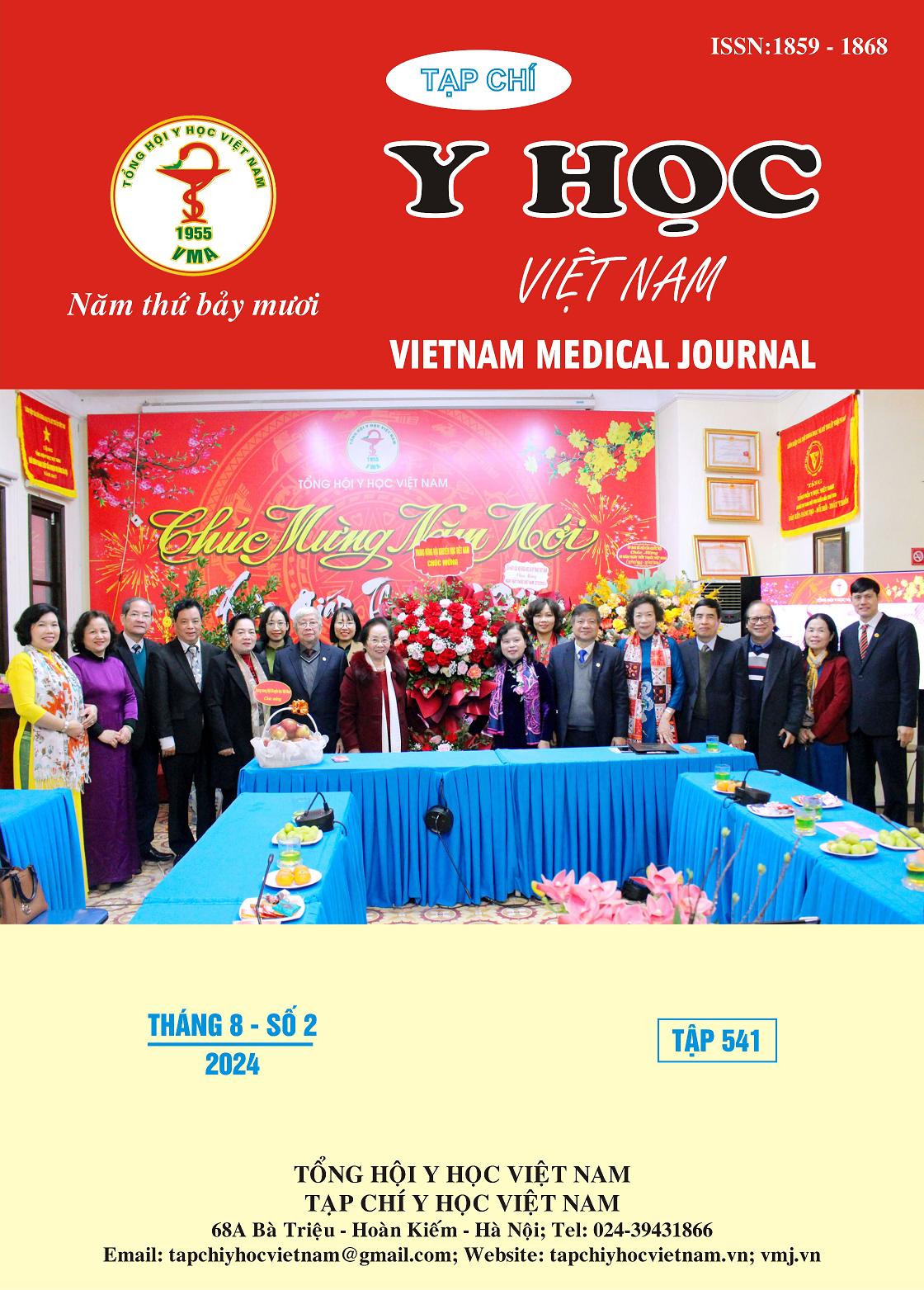STUDY OF THE KNOWLEDGE AND ATTITUDES OF PRESCHOOL TEACHERS ON MENTAL HEALTH CARE IN VINH LONG PROVINCE IN 2023 - 2024
Main Article Content
Abstract
Background: Mental health care for preschool children is an issue of concern today. Preschool teachers are the ones who regularly come into contact with children of preschool and kindergarten age. Early recognition and detection of children with mental disorders for early counseling, monitoring, and intervention is extremely necessary. Objectives: Determine the proportion of preschool teachers with the right knowledge and attitudes about mental health care and analyze a number of factors related to the knowledge and attitudes of preschool teachers in Vinh Long province in 2023-2024. Meterials and Methods: Research on 2,160 people participating in screening in the double X strategy at medical facilities in Vinh Long province using a set of prepared questions and data processed from SPSS 27.0 software. Results: The proportion of preschool teachers with good knowledge is 18.1% and good attitudes reach 39.6%. Some factors related to the correct knowledge ratio include: previous mental health training (p<0.001), and number of training sessions (p<0.001). Some factors related to the correct attitude rate include: seniority (p<0.05), previous mental health training (p<0.001). Conclusion: Knowledge and attitudes about mental health care among preschool teachers in Vinh Long province are still low. In the coming time, the health sector needs to coordinate with the education sector to organize many training classes and professional training to improve knowledge and attitudes about mental health care for preschool teachers in Vinh Long province.
Article Details
References
2. Vasileva M. et al (2021), "Research review: A meta-analysis of the international prevalence and comorbidity of mental disorders in children between 1 and 7 years", J Child Psychol Psychiatry. 62(4), tr. 372-381.
3. Thái Huỳnh Ngọc Trân và cộng sự (2021). Nghiên cứu kiến thức và thái độ của giáo viên mầm non về rối loạn phổ tự kỷ tại Cần Thơ năm 2020. Tạp Chí Y Học Việt Nam. 501 (2).
4. Kaur N, Behere NS, Kulkarni AS. (2023), A study of beliefs towards mental illness among teachers in Sikar city, Rajasthan. Indian J Psychiatry. 2023 Apr;65(4):424-430.
5. Nguyễn Cao Duy và cộng sự (2020). Quan điểm về giáo dục trẻ rối loạn phổ tự kỷ của giáo viên mầm non tại Hà Nội năm 2019. Tạp chí nghiên cứu Y học. 126 (2) – 2020.
6. Johnson CL, Gross MA, Jorm AF, Hart LM. Mental Health Literacy for Supporting Children: A Systematic Review of Teacher and Parent/Carer Knowledge and Recognition of Mental Health Problems in Childhood. Clin Child Fam Psychol Rev. 2023 Jun;26(2):569-591.
7. Bella, T., Omigbodun, O., & Atilola, O. (2011). Towards School Mental Health in Nigeria: Baseline Knowledge and Attitudes of Elementary School Teachers. Advances in School Mental Health Promotion, 4(3), 55–62. https://doi.org/ 10.1080/1754730X.2011.9715636.
8. Cavioni, V., Grazzani, I., & Ornaghi, V. (2020). Mental health promotion in schools: A comprehensive theoretical framework. International Journal of Emotional Education, 12(1), 65-82.
9. Cefai C, et. al. (2022), The effectiveness of a school-based, universal mental health programme in six European countries. Front Psychol. 2022 Aug 8;13:925614.
10. Agyapong V, Migone M, Crosson C, Mackey B. (2010), Recognition and management of Asperger's syndrome: perceptions of primary school teachers. Ir J Psychol Med. 2010 Mar;27(1):6-10


